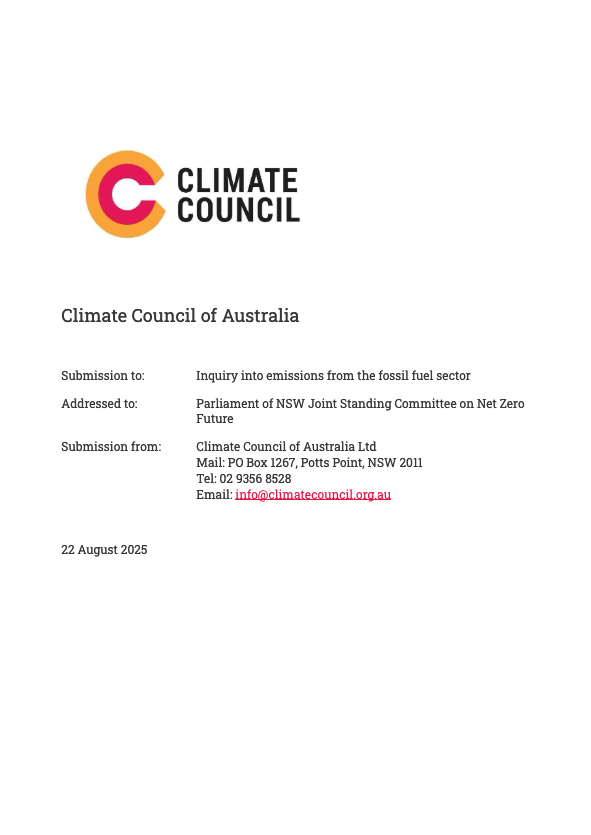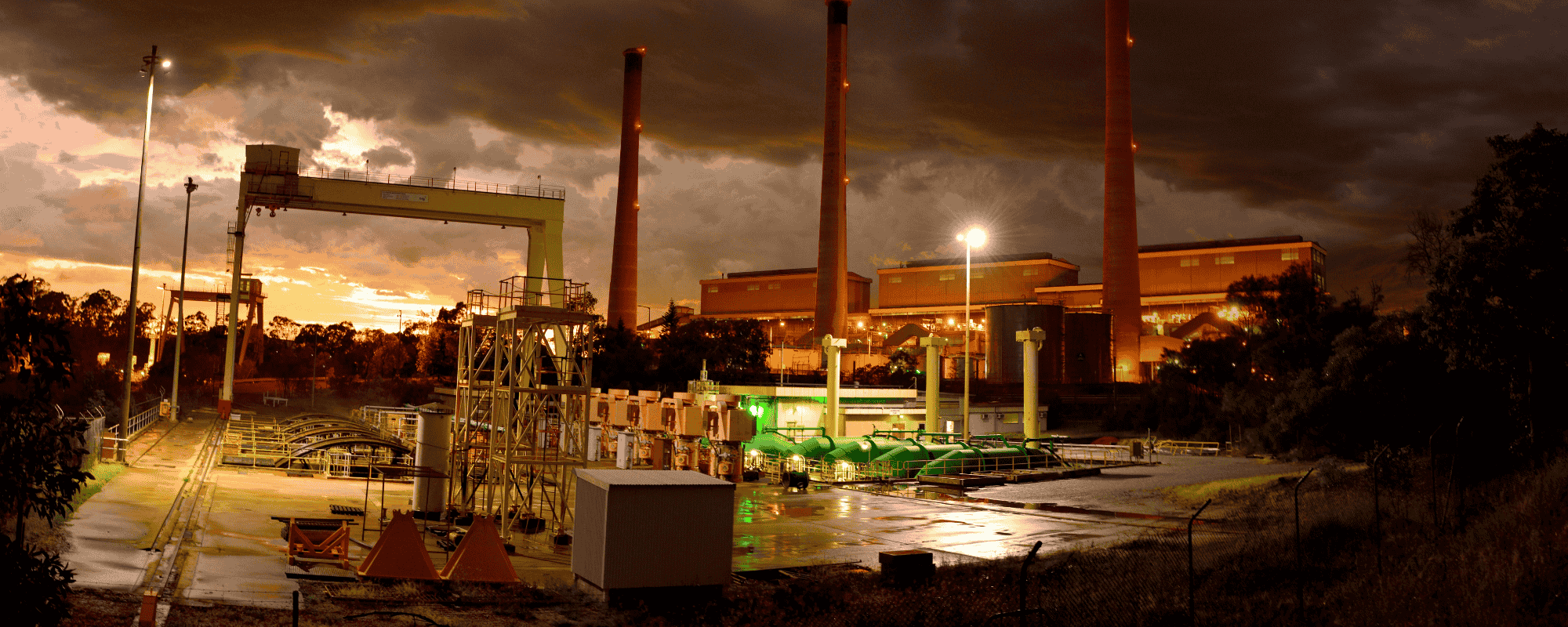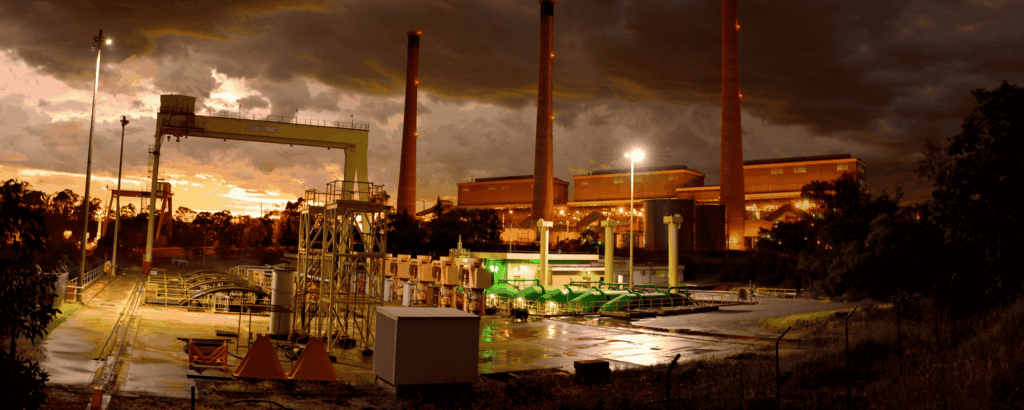The Climate Council welcomes the Joint Standing Committee on Net Zero Future (Committee) Inquiry into emissions from the fossil fuel sector. Urgently addressing emissions from the fossil fuel sector by phasing out fossil fuel extraction, use and exports is critical to the safety, security and prosperity of communities and natural environments in NSW and across Australia.
In the first half of 2025 alone, communities across NSW have experienced heatwaves, a tropical cyclone, record-breaking flooding and a ‘cyclone bomb’, compounding the effects of back-to-back extreme weather events in recent years. These kinds of disasters are no longer simply ‘natural’. Climate-fuelled disasters are becoming more frequent and intense, and communities are feeling the consequences. They also come with a significant financial cost: the most recent State Budget shows expenditure on natural disasters has increased more than 1000% in the six years since the 2019-20 bushfires compared to the six years prior (NSW Government 2025).
On our current trajectory, these impacts will become more severe. Both of the temperature limits in the Paris Agreement will be breached, either temporarily or indefinitely, if we do not rapidly change course. Every fraction of a degree of avoided warming matters, and will be measured in lives and livelihoods saved, fewer families forced from their homes, and a safer future for our children (Climate Council 2025).
As Australia’s second highest polluting state, accounting for one quarter of the country’s emissions, NSW has a responsibility – enshrined in its Climate Change (Net Zero Future) Act 2023 – to play its part in meeting globally agreed goals. We welcome the work underway across NSW to address emissions from fossil fuels including the NSW Guide for Large Emitters, the NSW High Emitting Industries Fund, development of a Greenhouse Gas Mitigation Guide for NSW Coal Mines, and commitment to review the Strategic Statement on Coal Exploration and Mining in NSW. We also acknowledge that many issues require national coordination, and the Australian Government is progressing work such as the Expert panel on Atmospheric Measurement of Fugitive Methane Emissions in Australia and amendments to fugitive methane reporting methods. However, these initiatives do not address the fundamental issue: dealing with climate change means dealing with our fossil fuel industry and its polluting exports.
To meet its legislated targets and protect its communities and economy, NSW must cut climate pollution as steeply and rapidly as possible. This requires ending the approval of new and expanded fossil fuel projects, and ensuring existing projects take urgent action to cut their emissions. NSW must also acknowledge the enormous contribution of exported NSW coal to global climate pollution.
Recommendations
The continued approval of fossil fuel expansions is incompatible with NSW’s climate targets and obligations under the Climate Change (Net Zero Future) Act 2023.
- End the approval of new and expanded coal mines.
NSW’s emissions data and projections are likely to significantly underestimate the fugitive emissions from NSW’s coal mines.
- Progress state-based regulatory reforms to improve the accuracy of fugitive emissions measurement.
Climate pollution produced by burning Australian fossil fuels overseas affects the climate in the same way as if they were burnt in Australia – driving damaging climate impacts and harming Australian communities.
- Increase transparency of, and accountability for, the impacts of NSW’s exported fossil fuels.
Methane abatement in the fossil fuel industry is one of the most pragmatic and lowest cost options to reduce climate pollution.
- Require NSW’s most polluting coal mines to cut their methane emissions as a condition of continued approval to operate.
Climate impacts are a significant – and growing – cost to NSW’s communities, businesses, industries and government.
- Increase investment in adaptation and resilience alongside action to cut climate pollution.
Decommissioned coal mines represent a potential major source of emissions if not managed appropriately.
- Require all mining companies to comprehensively plan for methane mitigation beyond the end of operations.
Continued gas extraction also presents a major risk to NSW’s emissions targets.
- Set a clear plan to reduce gas demand in NSW through the Gas Decarbonisation Strategy.











